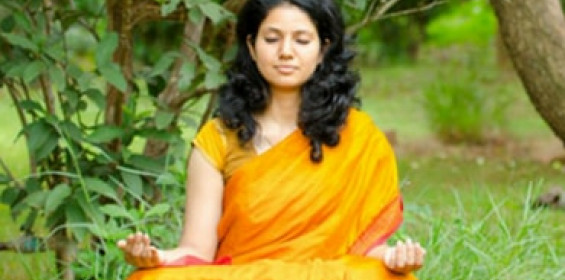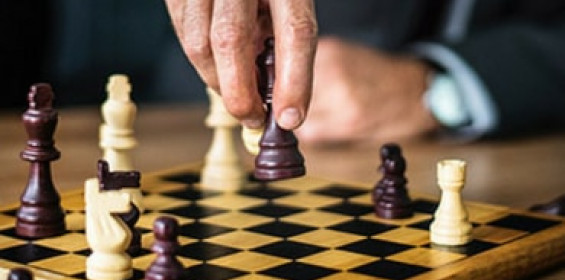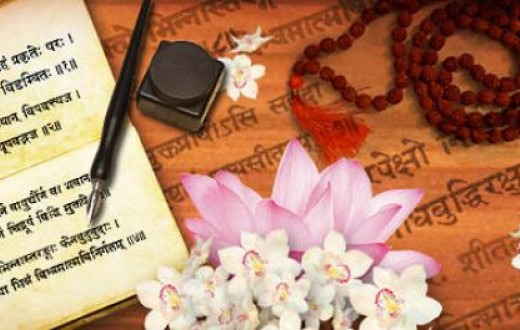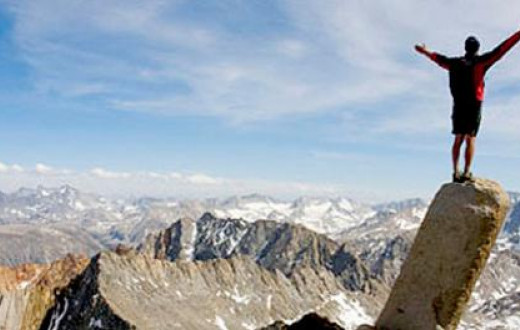
I would request you to take some time and visit the camps to reassure the people there and bring back their smile. Yesterday, when I walked through a couple of camps, people said, ‘Today we are happy and are able to smile’. It was a very good meeting.
Bringing a smile in spite of all the misery and in the midst of disaster is something we can do. This is something we should all focus on.
The next thing we need to focus on is prevention. How can we prevent people from joining such forces? We will have to talk to every government of this world and tell them to spend time and resources in peace building activities and peace education. Even if a fraction of what is spent on defense would be spent on peace education, it will not allow such an inhuman behavior among the youth.
All these misguided youth are from among us; they are our own brothers. Why have they been mislead? It is because they did not get any education on peace. It is absolutely necessary now to induct peace education in all our curriculum so that no child on this planet grows up thinking that he is doing the job of God by engaging in bloodshed and violence.
I would request all the educationalists here to please take the initiative to introduce peace education, a multi-cultural, multi-religious education and education to handle one’s emotions and traumas of the mind.
I request the media to showcase all the good work that has been done, and also to work towards patching up the differences between communities by highlighting the compassion showed by people of the different communities in many countries.
I would also ask the media to tell people that when they are stressed and in tension, there are ways to get rid of it; they don’t have to live with tension in their minds and hearts all the time. I would request the mainstream media to encourage people to follow the path of non-violence.
Journalism has got two important aspects, one is to play the fact as it is in front of the people. Sometimes it can be depressing, but at the same time they should balance the facts with the good acts that many people are doing every day.
If you go to the camps you will see so many youth in the prime of their lives who could be focusing on their education, career and making money, but instead, they have left all that and are helping those who are in need. This kind of news should be highlighted so that people can be inspired to do something better in their life. The media can motivate people to take up social projects and plunge into action rather than dive into depression.
I would say religion has three aspects:
1. Values
2. Symbols and
3. Rituals and practices
The values seem to be the same amongst all religions, like brotherhood, oneness of God, love and compassion, serving the poor and needy. This is the spiritual aspect of religion.
Second, is symbol. Every religion has symbols, holy places and books. Third is rituals and practices. There can be many different rituals.
What people usually do is, they leave the values and hold on to the rituals and symbols. This is where conflict arises. That is why I say, ‘Spirituality unites people, but religions can divide people'.
If you see the major religions of the world, you will see that the Abrahamic religions come from the same source. It is like three brothers from the same family. But, there has been a lot of conflict.
Other religions like Shintoism, Taoism, Buddhism, Hinduism, Sikhism, Jainism, there has never been any conflict. The six religions of the Far East have always coexisted, and their rituals are completely different. Within Hinduism there are hundreds of sects, but there have never been any clashes. The basic rule is to respect and honor each other. It was the same with Islam. In Islam there are five different sects, or even more. There have been periods in history where they all coexisted peacefully. Even in Iraq, Shias and Sunnis coexisted.
When conflicts arise, it latches on to religion much more than any other identity and then the whole problem starts. We should focus more on the spiritual values which can unite people of all religions.
I would like to tell you a happening in Japan. Once, President Nixon went to Japan and he wanted to meet all the religious leaders. On one side of him was seated a Buddhist monk and on the other side was a Shinto priest.
President Nixon asked the Shinto priest, ‘What is the percentage of Shinto followers in Japan?’
He said, ’80%.’
He then turned to the Buddhist monk and asked him, ‘What is the percentage of Buddhist followers in Japan?’
He said, ’80%.’
The President couldn't understand how that was possible, but it is possible.
Similarly, if you come to India, the Jain and Hindus have completely different sets of beliefs and rituals, but they live together with such harmony. Similarly, the Sikhs and the Hindus participate in each other's festivals and honor each other but never has there been any conflict. They never said, ‘Only I will go to heaven.’
This is what the Middle East can learn from the Far East. Whether they are Yazidis, Christians, Muslims, Shias or Sunnis, Ahmedia or Sufi, they can all coexist. What is important is to honor the diversity.
This is between government to government. They have many policies. As an NGO, we can do what we can do. I think it is not possible for us to interfere into the foreign policies of the government. We cannot make one government stand against the other; that will be perceived as not being friendly. I would suggest you write to various governments and bring to their notice the communities that need urgent help, and that we would like to receive direct help from those governments.
Once upon a time the river Ganga had very pure water, and today our Prime Minister has taken up the job of cleaning the whole river which is considered very sacred. In India we honor the rivers, the trees, and the animals. Honoring the whole creation is a part of nature.
Nowhere in any scripture it is said that one needs to take a dip in the water; or that it is a prerequisite for someone to do yoga and meditation. These are all rituals. As I said, rituals and practices are different. People cultivate rituals over a period of time but the main thing is to appreciate the values. Values is the knowledge.
In poems it has always been said, ‘Knowledge is like a river. If you assimilate knowledge, you will be happy, you will be liberated’, this is the real message. The river Ganga, which you mentioned to be polluted also means knowledge.
In a simile it is said, 'If you are bathed in knowledge then you are free (here meaning liberated)'. But people literally take it as only if they bathe in the river will they be free. This is incidental or accidental, but the essence is living the values.
Yoga is a technique which unites the body, mind and spirit. Yoga relieves you from stress and tension. It is stress that causes weakness, anger, jealousy and all the negative emotions. When you get rid of stress using breathing techniques, meditation and some simple exercises, it helps your body and mind and creates a sense of well-being and happiness from inside. If you’re well and happy you will not be violent. When someone engages in violent activity, know that behind the violence there is anger and frustration.
We have all done yoga as kids. If you watch a child from the time it is born to the age of three, it would have done all the yoga exercises. The way a child breathes is different from the way an adult breathes. Breath is the link between the body and emotions and by attending to the breath you are able to soften the emotions and get rid of negative emotions.





































